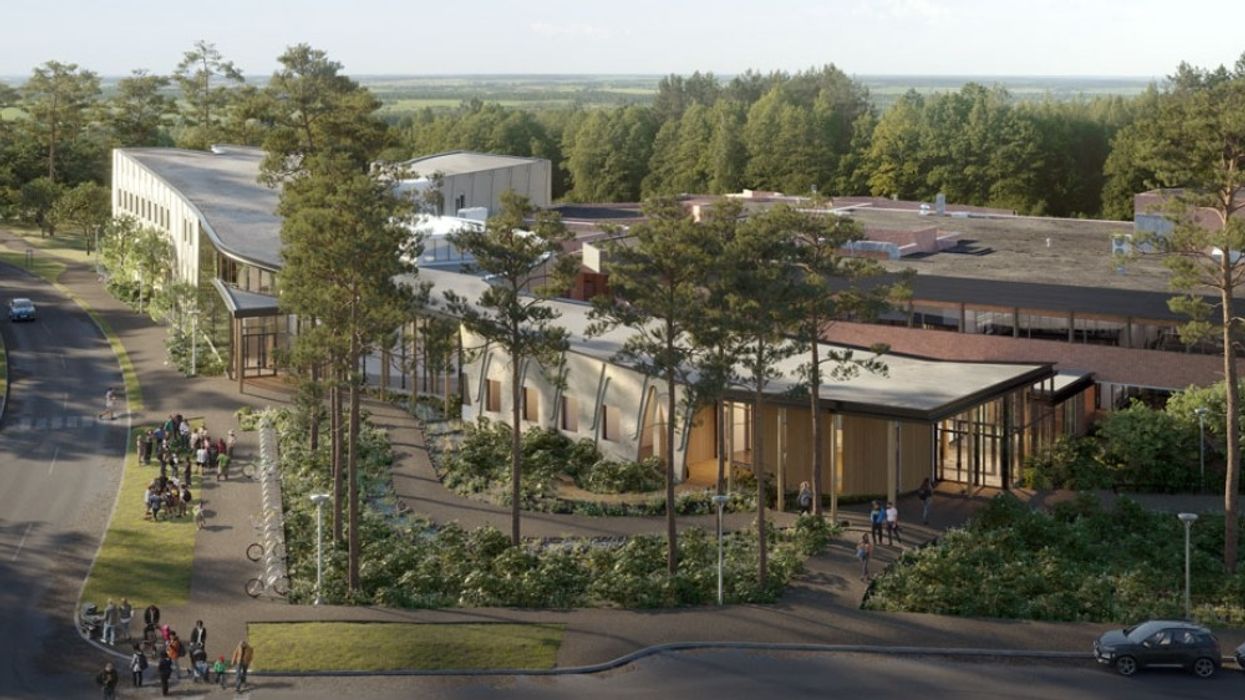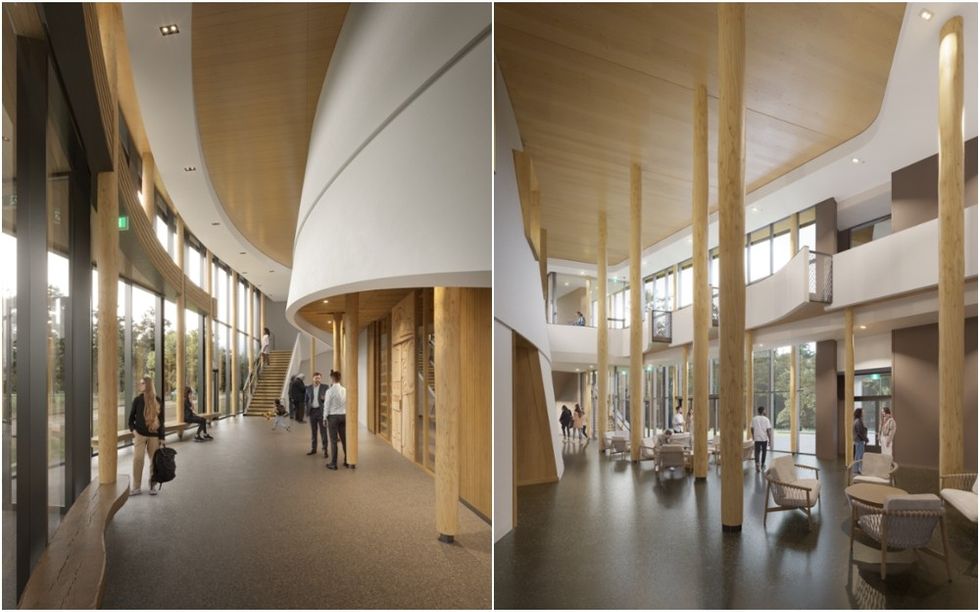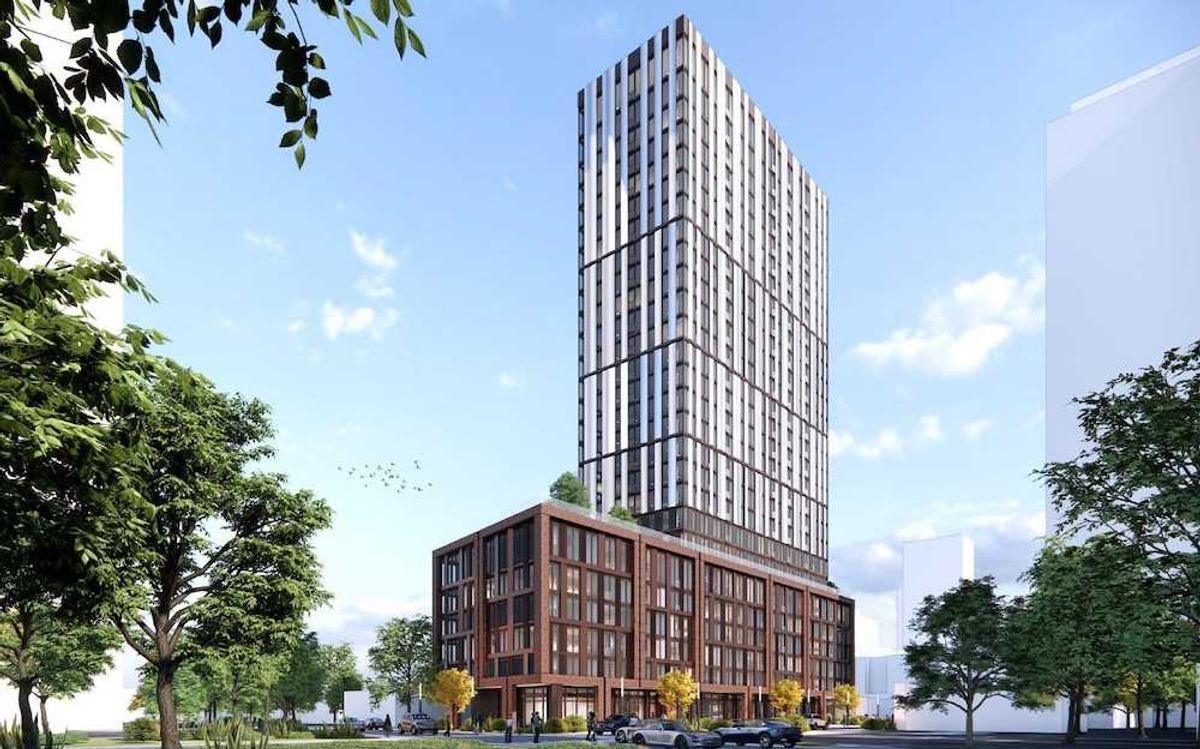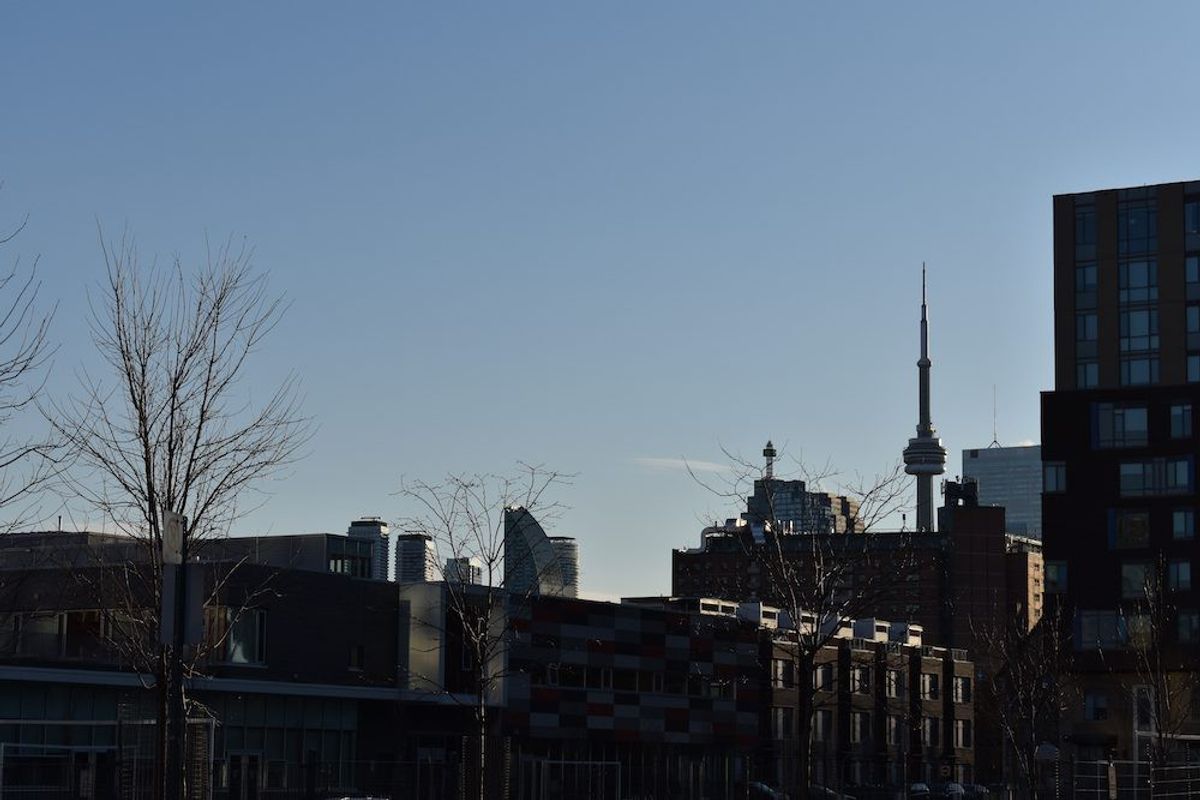Construction has officially begun on the University of Victoria's National Centre for Indigenous Laws, an important project that's the product of collaboration between the University, local indigenous communities, the Province of British Columbia, and the Government of Canada.
The National Centre for Indigenous Laws will be a 26,264 sq.-ft expansion of the existing Fraser building, home of the University's Faculty of Law and the Diana M. Priestly Law Library, and will include public lecture theatres, faculty offices, classrooms, meeting space, an Elders’ room, as well as spaces for gatherings and ceremonies.
The existing portion of the Fraser building will also receive numerous upgrades, including new end-of-trip cycling facilities, renovations to the student lounge, new flooring, new carpeting, and ceiling improvements. Furthermore, the project will also utilize multiple sustainability approaches, such as mass timber, electric heat pumps, maximization of solar orientation, and others, all of which are expected to bring the building to LEED Gold certification.
Construction on the project began on Tuesday, November 8, a representative of the University of Victoria confirmed to STOREYS, and is expected to be completed and open in 2024.
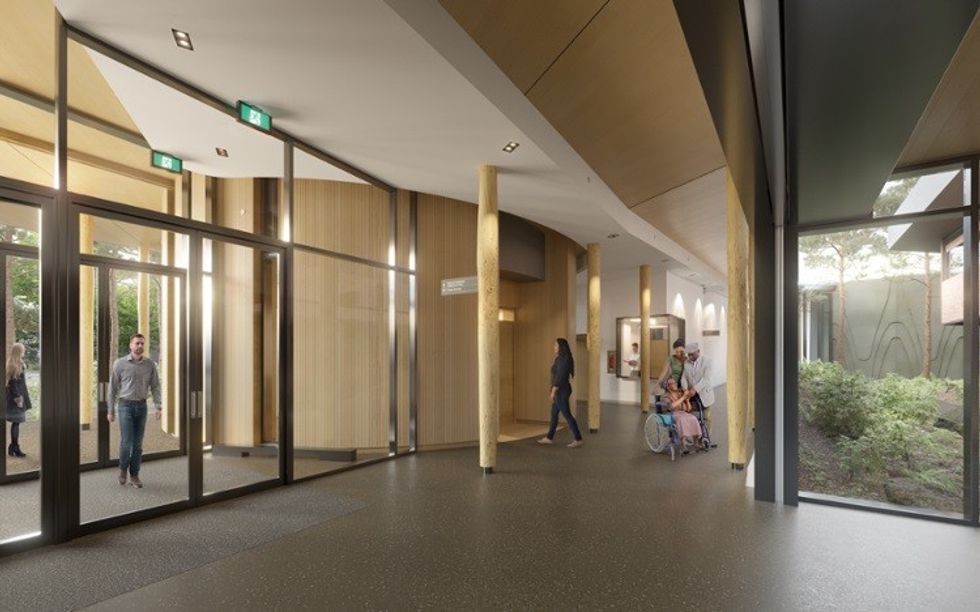
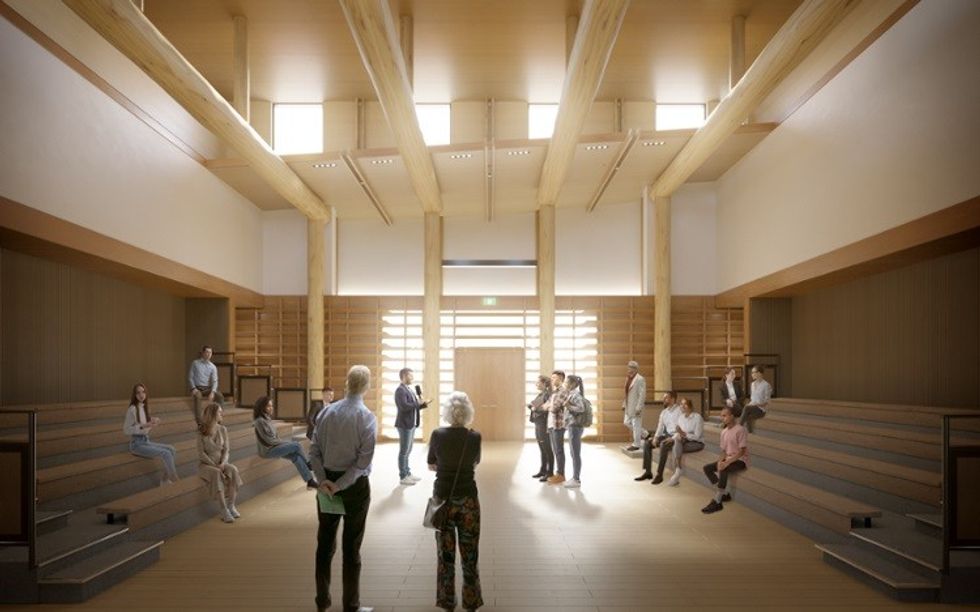
The project is expected to cost $27.1M. In September 2020, the Province of British Columbia said it would be providing $13M towards the project, along with $9.1M from the federal government, and $5M from the Law Foundation of BC.
The National Centre for Indigenous Laws will also be the new home of the world’s first joint degree in Indigenous legal orders and Canadian common law, a four-year program where graduates earn both a Juris Doctor (JD) and Juris Indigenarum (JID) upon completion.
The program, originally started in 2018, ensures its students "develop the skills you need to practice with Indigenous legal orders, within Canadian common law, and at the interface between them" and allows them to make an impact in fields such as environmental protection, Indigenous governance, economic development, housing, and child protection.
The University says representatives from the Faculty of Law involved in the project consulted with elders and community members from the Esquimalt, Songhees, and W̱SÁNEĆ (Saanich) Nations and the Province says the program aligns with both provincial and federal government priorities and aligns with calls to action outlined by the Truth and Reconciliation Commission of Canada.
Leading the design of the building will be Two Row Architect -- a firm that's "100% native-owned and operated from the Six Nations reserve in southern Ontario" -- in partnership with Ontario-based Teeple Architects and Victoria-based Low, Hammond, Row Architects.
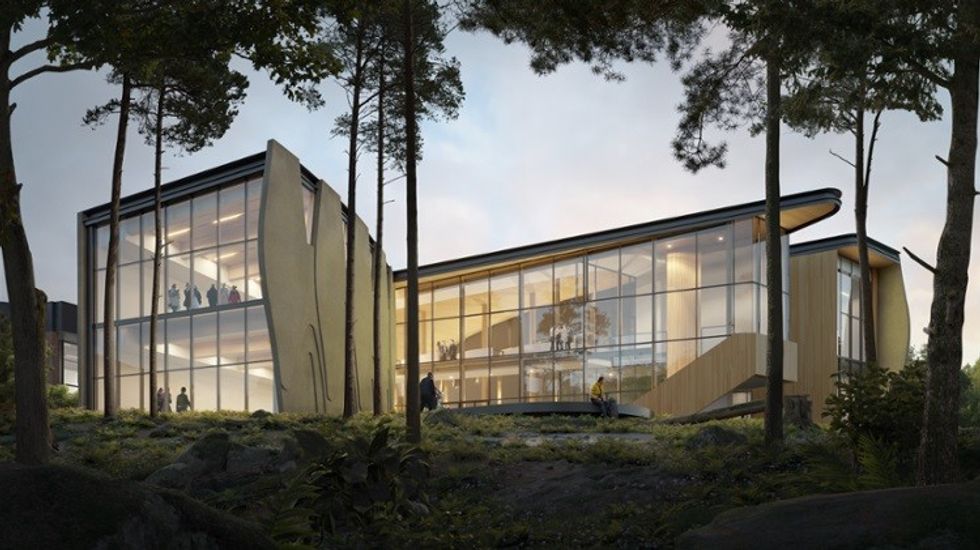
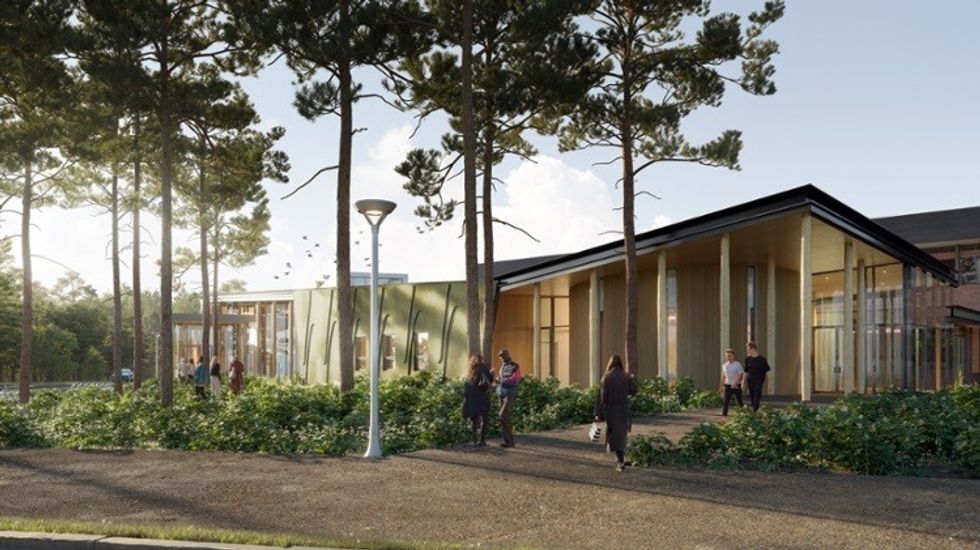
"This physical structure represents a sanctuary where our laws, which enable us to be peoples, will be safe, and where both Indigenous and non-Indigenous students will learn about those laws, creating the foundation to a multi-juridical Canada," Dr. Val Napoleon, a professor at the University of Victoria and the Chair of the Law Foundation of Indigenous Justice and Governance, said at the time of the project's announcement.
READ: Vancouver Approves UNDRIP Strategy, with Actions on Land, Housing, and More
In 2019, British Columbia became the first province or territory in Canada to pass legislation that would implement the United Nations Declaration on the Rights of Indigenous Peoples (UNDRIP), which the UN calls "a universal framework of minimum standards for the survival, dignity, and well-being of the Indigenous peoples of the world", and the Province's involvement in this project is another step towards achieving that.
"Supporting the University of Victoria’s world-leading Indigenous law centre and programming is another example of how BC continues to advance reconciliation with Indigenous peoples in a meaningful way," said Scott Fraser, Minister of Indigenous Relations and Reconciliation. "Education is key to reconciliation. Through this knowledge, we must come to understand the past and can work together to support healing to make a real difference in the lives of Indigenous families and everyone in BC."
